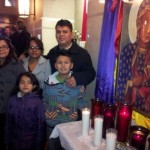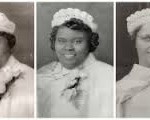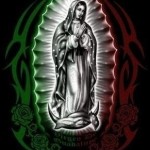 Gary Tillery’s The Seeker King: A Spiritual Biography of Elvis Presley, published by Quest Books (an imprint of the Theosophical Society), presents the King as a life-long seeker, making a case that Elvis was more involved in seeking mystical wisdom from sources as diverse as the Self Realization Fellowship (already a well-known part of Elvis’s religious seeking, see Peter Guaralick’s exhaustive 2-volume biography of Elvis.) To Elvis lore, Tillery adds that Elvis also sought solace in the writing of Joseph Benner, a spiritual channeler of sorts, who was said to have been inhabited by God to dictate spiritual life stories of Jesus.
Gary Tillery’s The Seeker King: A Spiritual Biography of Elvis Presley, published by Quest Books (an imprint of the Theosophical Society), presents the King as a life-long seeker, making a case that Elvis was more involved in seeking mystical wisdom from sources as diverse as the Self Realization Fellowship (already a well-known part of Elvis’s religious seeking, see Peter Guaralick’s exhaustive 2-volume biography of Elvis.) To Elvis lore, Tillery adds that Elvis also sought solace in the writing of Joseph Benner, a spiritual channeler of sorts, who was said to have been inhabited by God to dictate spiritual life stories of Jesus.
Tillery’s popular work includes a few familiar tidbits about Elvis’ spiritual formation as a Pentecostal growing up in the Assemblies of God in Mississippi and Tennessee. Though not as prominent in Tillery’s book, Elvis’ Pentecostalism played a larger part in his religious pastiche than Tillery mentions here. Though to be fair, Tillery’s focus is not Elvis’ Christian upbringing as much as it is fleshing out Elvis the seeker of Eastern mysticism. Tillery’s book does point to some lesser known spiritual trajectories that Elvis took on his way towards his sad but almost inevitable end. Elvis was said to have some Jewish roots on his mother’s side, he reported being able to heal, have psychic powers, saw a UFO, and has appeared to several people even after his death from a drug overdose in 1977.
What ties Tillery did not tie together were, for at least some of these phenomenon, specifically, healing, “psychic powers,” and resurrection are all phenomenon that Pentecostals have been describing for over a century, particularly in early periodicals and in among Pentecostals in today’s global South. These phenomenon, described within the confines of Christian orthodoxy still have great appeal for the majority of global Pentecostals. For Pentecostals like Elvis, healing was and is an essential component of the faith, so Tillery’s descriptions of Elvis “laying hands,” (my description not Tillery’s), on a child and the child recovering makes Elvis a good Pentecostal doing what all Pentecostals would do if asked to pray for a sick person. Elvis having “psychic” impressions of events and people’s thoughts, is what is called in Pentecostal parlance, “words of knowledge” and “prophecy,” both very active in the spiritual lives of the faithful. Resurrection–normally reserved for a select few in Christian history, has taken on a whole new democratic dimension in Pentecostalism–since the pages of early Pentecostal magazines are filled with accounts of resurrections as are accounts from the global South today.
Tillery did not mention Elvis’ life-long desire to be understood, and how difficult it was for him to be cut off from his Pentecostal roots, since most of his brethren in the Assemblies of God disapproved of Elvis’ music and rock music in general. An example of this comes from Guralick’s biography. Towards the end of his touring days, which were so chaotic and filled with the unfortunate effects of decades of unhealthy eating and massive consumption of prescription medications, Elvis found himself in the company of noted Pentecostal evangelist, Rex Humbard, whom he asked to pray for him, because at this point in his life he had no idea what was going on, where it all went wrong, and he just wanted Rex to know that he was just trying to do what God put him on this earth to do–he just wanted to be understood.
Ultimately, Tillery’s book is a popular take on a well-worn subject, with some interesting insights into the extent of Elvis’ religious seeking, with much of this material previously available in Guralick’s book and other biographies, Tillery’s contribution solidifies what has been explored before, that Elvis was a closer follower of Self Realization Fellowship than previously known, and that as he was told on one his visits to SRF, that he would develop supernatural powers, which, given his background and socialization into the supernatural world of Pentecostalism, isn’t at all surprising–what may be surprising is as a seeker, Elvis moved beyond the orthodox confines of the faith of his upbringing to explore Pentecostalism’s more extravagant spiritual realities.
For more about Elvis’ spirituality & to commemorate the King’s first television appearance 58 years ago on the Dorsey Brothers Show, please see my post in US Religion blog: http://usreligion.blogspot.com/2014/01/impairing-morals-of-1950s-america-st.html
















